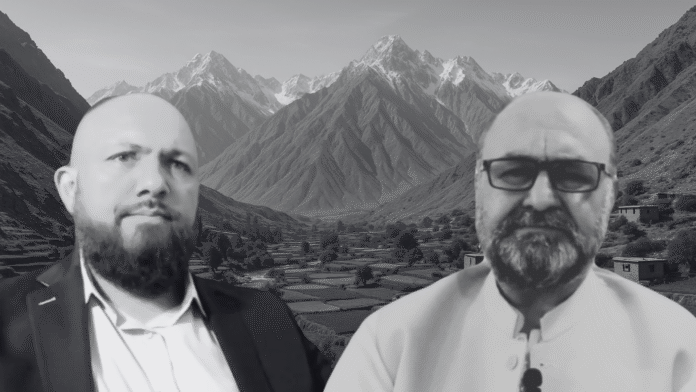On the latest edition of the Afghan Eye Podcast, host Sangar Paykhar sat down with veteran journalist and analyst Haq Nawaz Khan to discuss the evolving relationship between Pakistan and Afghanistan since the establishment of the Islamic Emirate in Kabul. Their conversation placed particular emphasis on the recent surge in militancy along the Durand Line and the Pakistani military’s announcement of Operation Sarbakaf in the Mamund region of Bajaur district on 29 July 2025.
The Emirate’s Rise and Bilateral Strains
‘The Afghan Taliban’s ascend to power in August 2021 fundamentally altered strategic calculations in Islamabad,’ Khan observed, tracing how Pakistan’s initial outreach to the new Kabul authorities yielded both cooperation and suspicion. He noted that while Islamabad publicly sought stability, deep-seated doubts persisted over whether the Afghan Taliban would restrain groups like the Tehrik-i-Taliban Pakistan (TTP) operating from Afghan soil.
Rising Militancy along the Durand Line
‘Since early 2024, we have seen a marked uptick in TTP attacks on Pakistani security posts,’ Khan explained. Drawing on his contacts in Khyber-Pakhtunkhwa, he described how militants exploited porous tribal areas to regroup. Pakistani authorities allege that fighters move freely across the Durand Line, then blend into villages before striking. The presence of militants in remote regions along the Durand Line is sited as justification for the military actions in the area.
Operation Sarbakaf Unfolds
According to Khan, Operation Sarbakaf was announced with little warning to local communities. ‘On 29 July, my sources reported a sudden three-day curfew across 15–16 villages in Mamund,’ he recounted. The Pakistani military framed Sarbakaf as a targeted strike aiming to dismantle TTP hideouts. Yet the abrupt restrictions bred confusion and fear among residents who had no time to evacuate or safeguard their families.
Civilian Outrage and Protest
Khan provided a vivid account of escalating dissent: ‘By 30 July evening, thousands—students, elders and former MPs—marched in the main square with white flags, pleading for an end to hostilities.’ He quoted protest leaders calling on both the Pakistani military and militant groups to cease fire: ‘Our people bear the brunt; this cycle of violence must stop.’ He also highlighted disruptions to emergency services and communications that exacerbated civilian hardship.
Between Security and Reconciliation
Throughout the interview, Khan urged a balanced approach. ‘Military operations can clear immediate threats,’ he said. ‘But lasting peace requires dialogue—tribal leaders, Islamabad and Kabul must engage on border management and economic links.’ He praised recent diplomatic overtures, including Afghan Acting Foreign Minister Amir Khan Muttaqi’s planned trip to Islamabad, as potential confidence-building steps.
Looking Ahead
As Operation Sarbakaf is set to conclude on 31 July 2025, Sangar Paykhar asked what comes next. Khan stressed that the real test lies in post-operation engagement: ‘Will authorities lift the curfew fully, allow humanitarian access and begin sustained talks? That will determine if Sarbakaf is remembered merely as a crackdown or the start of a broader reconciliation process.’

